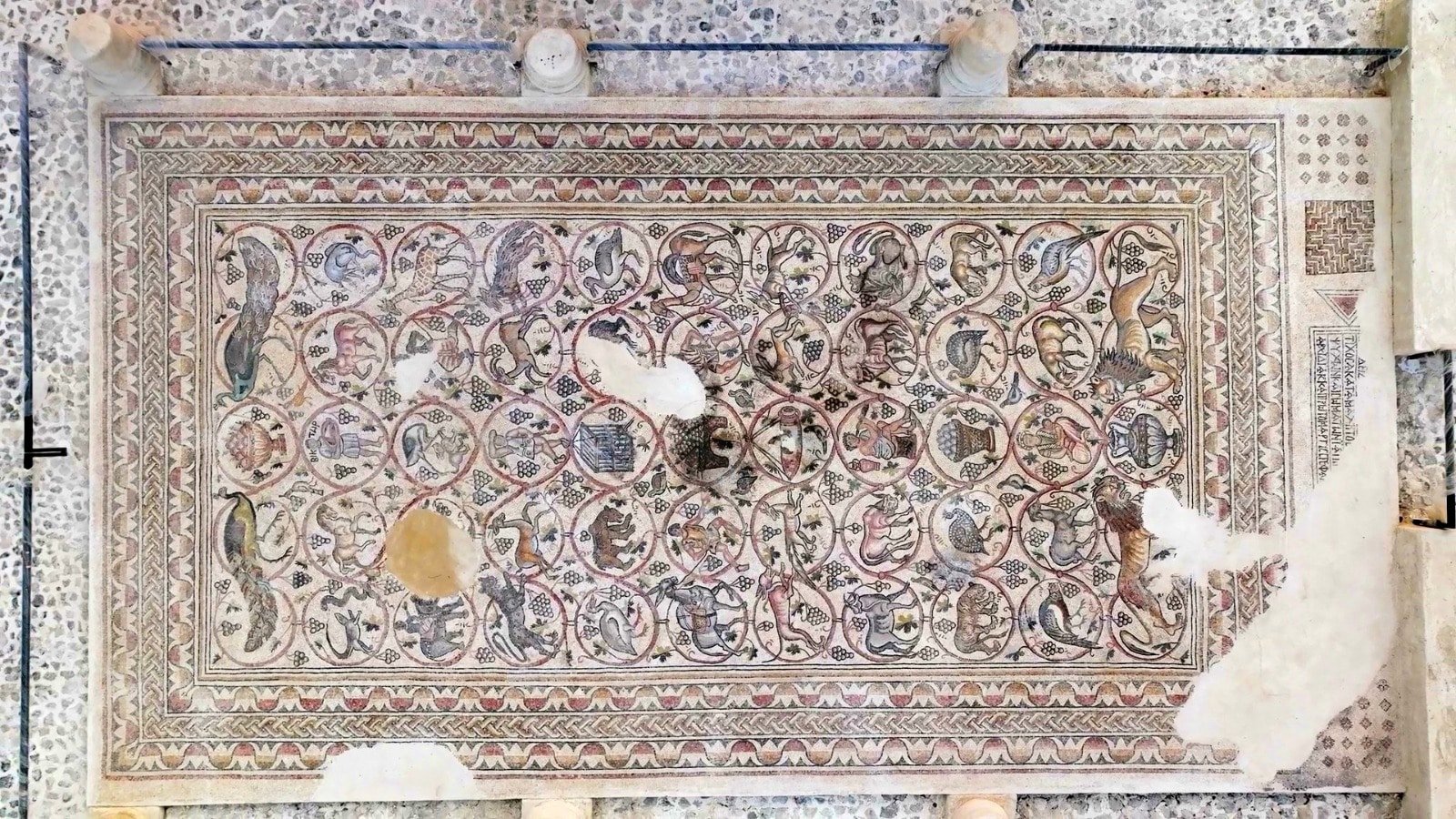

A 1,600-year-old mosaic hailed as one of Israel’s most remarkable archaeological finds is now on public display in the Western Negev, offering a vivid window into life during the Byzantine period.
Originally discovered in 1990 near Kibbutz Urim close to the Gaza Strip, the Be’er Shema mosaic, also known as Birsama, was unearthed during excavations led by the Israel Antiquities Authority. After decades of conservation work, it is now permanently housed at the Merhavim Regional Council headquarters.
The mosaic was officially unveiled to the public on May 25 during a ceremony attended by Heritage Minister Amichai Eliyahu, Israel Antiquities Authority Director Eli Eskosido, and Merhavim Regional Council Head Shay Hajaj. Local students and residents joined the celebration, which featured archaeological activities, art booths, and tree planting.
The mosaic, dating to between 324 and 638 CE, once adorned a large monastery complex. It features 55 circular medallions filled with rich imagery, including mythological figures, hunting scenes, exotic animals, baskets of fruit, and daily life activities.

Archaeologist Shaike Lender, who led the original excavation, said the piece reflects the work of a “true artist.” Thousands of tiny stones, along with bits of colored glass and pottery, made up the detailed images.
Other structures found at the site include a large winepress and several clay storage jars, suggesting the monastery operated as a self-sufficient community engaged in wine production.

The settlement sat along a historic trade route between Halutza and the port of Gaza. Known as part of the ancient Nabataean-Roman spice trail, the route linked desert outposts and coastal cities.

The area likely sheltered travelers crossing the harsh landscape and marked the boundary between desert and cultivated land.
Shortly after its discovery, the mosaic was covered to protect it from exposure and farming activities. Despite those efforts, the artwork began to deteriorate. That prompted emergency restoration efforts by the Antiquities Authority and Israel’s Ministry of Heritage.

Under the “Antiquities Right at Home” initiative, the mosaic was re-excavated, restored, and moved to a protected site where it can be viewed by the public year-round.
“This beautiful mosaic, a living testament to life that existed in the Negev roughly 1,500 years ago, will be preserved here and serve as a focal point for visits and learning—for tourists, students, and residents from across the country,” said Shay Hajaj, head of the Merhavim Regional Council.

The mosaic is now part of an open-air archaeological garden. The site in Negev includes signs, seating areas, and access roads, making it a new cultural and educational landmark in the region.
Officials hope the display will deepen public appreciation for the area’s rich history and attract visitors from across Israel and beyond.
